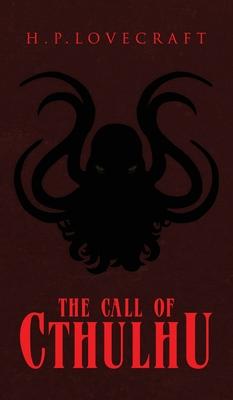Behold, the very first appearance of Cthulhu in Lovecraft's literature! Published in 1928 in "Weird Tales" magazine, comes The Call of Cthulhu, wherein H. P. Lovecraft throws down the gauntlet in the horror genre, drawing forth from his dreams and imagination all the dark things. The Cthulhu 'myth' would take on a life of its own, as so many 'myths' do. In this way, the myth declares that it is singularly alive--true, it lives only in the minds of men, but such myths leap over generations and grow into their own thing. Readers then encounter the myth rather than create it, even as the myth's existence depends on readers encountering it. It would not do justice to Lovecraft's storytelling to attempt to explain what the various parts The Call of Cthulhu might represent, especially as the narrative unfolded into later works. Indeed, Lovecraft himself likely wouldn't have tried. Some things are just better that way.

Behold, the very first appearance of Cthulhu in Lovecraft's literature! Published in 1928 in "Weird Tales" magazine, comes The Call of Cthulhu, wherein H. P. Lovecraft throws down the gauntlet in the horror genre, drawing forth from his dreams and imagination all the dark things. The Cthulhu 'myth' would take on a life of its own, as so many 'myths' do. In this way, the myth declares that it is singularly alive--true, it lives only in the minds of men, but such myths leap over generations and grow into their own thing. Readers then encounter the myth rather than create it, even as the myth's existence depends on readers encountering it. It would not do justice to Lovecraft's storytelling to attempt to explain what the various parts The Call of Cthulhu might represent, especially as the narrative unfolded into later works. Indeed, Lovecraft himself likely wouldn't have tried. Some things are just better that way.